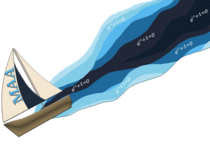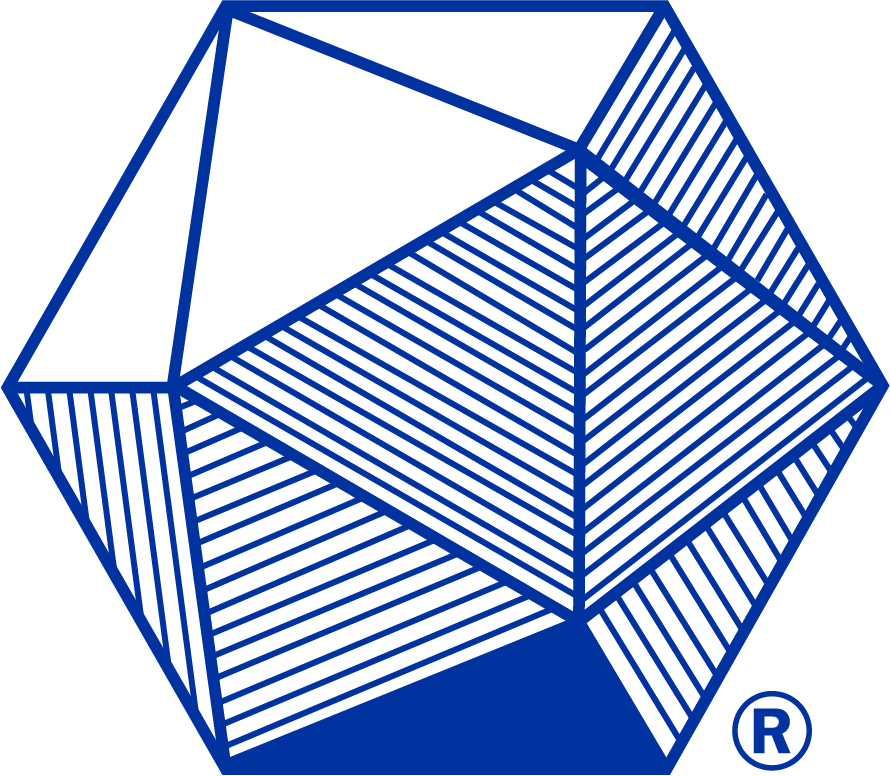Friday – May 5
Location: Federation Hall/Columbia B
-
- Time:
- 3:00 pm – 6:00 pm
- Title:
- Meetings of the Executive and Extended Executive Committees
Friday – May 5
Location: Federation Hall/Columbia A
-
- Time:
- 3:00 pm – 5:00 pm
- Title:
- Workshop : Math Teaching Colloquium
- Speaker:
- Diana Skrzydlo : University of Waterloo
Abstract
Many math faculty colleagues have attended teaching conferences throughout the 2022-2023 academic year, and this is your chance to hear the highlights of what they learned. There will be several short presentations focused on the most practical, actionable advice that you can use in your own teaching, and a roundtable discussion for you to share what you have learned as well. The presentations will be led by Andrew Beltaos, University of Waterloo, Bailey Kacsmar, University of Waterloo, and Burcu Karabina, University of Waterloo.
Friday – May 5
Location: Federation Hall/Main Hall
-
- Time:
- 5:30 pm – 6:45 pm
- Title:
- Registration
-
- Time:
- 6:00 pm – 6:45 pm
- Title:
- Social Hour : Cash Bar and Passed hors d'oeuvres
-
- Time:
- 6:45 pm – 8:00 pm
- Title:
- Banquet - Buffet style
-
- Time:
- 8:00 pm – 8:45 pm
- Title:
- Dots and Lines: The Hidden Networks Around Us
- Speaker:
- Anthony Bonato : Toronto Metropolitan University
Abstract
Networks measure interactions. The last twenty years, especially, have seen an explosion of network methods applied to every discipline imaginable. From early examples like the web graph, we now study networks from food webs, mobile calls, political votes, smart grids, characters in novels, conflicts, protein interactions in living cells, supply chains, Bitcoin transactions, and neural connections in the brain. Although networks are everywhere, many are invisible. Mathematicians are only beginning to reveal these hidden networks and unlock their secrets. We give a guided tour of the modern field of network science, with insights along the way into what makes networks tick.
-
- Time:
- 8:45 pm – 10:00 pm
- Title:
- Math Game Night
Abstract
· Trivia using Kahoot · Mathematical charades/Taboo · Math Family Feud
Saturday – May 6
Location: STC Atrium/1012
-
- Time:
- 8:00 am – 8:30 am
- Title:
- Registration and Continental Breakfast
-
- Time:
- 8:30 am – 8:40 am
- Title:
- Welcome from Mark Giesbrecht, Dean of Mathematics, University of Waterloo
-
- Time:
- 8:45 am – 9:30 am
- Title:
- Graph Theory for the Cruise Director
- Speaker:
- Penny Haxell : University of Waterloo
Abstract
In this lecture I'll share two of my favourite topics to teach in graph theory courses. I'll describe them both as solutions to problems that might be faced by the cruise director on a luxury cruise ship, who is responsible for arranging all the social events on board. How can the passengers be organised into harmonious groups for dinner seating or excursions? How can we find a good way to assign partners for an evening of tango lessons? We can formulate these questions as certain graph colouring and matching problems, that have particularly beautiful solutions. We'll even solve one of them together on the spot, using a human computer made up of audience members.
-
- Time:
- 9:40 am – 10:10 am
- Title:
- Business Meeting
-
- Time:
- 10:15 am – 11:00 am
- Title:
- A mathematicians journey in education and outreach
- Speaker:
- Frédéric Gourdeau : Université Laval
Abstract
My journey as a mathematics educator started more than 25 years ago, at Université Laval. Early on, I started teaching pre-service courses for elementary and secondary school teachers, and I attended annual meetings of the Canadian Mathematics Education Study Group. These early experiences led me to reflect on the type of mathematical experiences pre-service teachers (K-12) can benefit from. While I have learnt a great deal with colleagues in mathematics and mathematics education in different settings, as well as from some reading and my own experience, there is still much I wonder about. Over the years, I also had the chance to work with and get to know some fantastic school consultants and in-service teachers (through my involvement with various associations and projects). Gradually, I saw that there was a space where I could contribute: in this space, my aim is specifically to support in-service teachers. Over the years, this part of my work grew in importance and some of the material we developed is accessible on the “La magie des maths†website (lamagiedesmaths.ulaval.ca). (Some activities are available in English at amazingmaths.ulaval.ca.) The talk will be about teaching strategies and outreach, as I try to convey an interesting mix of activities and intentions, both for in-service and pre-service teachers. I hope it will be the beginning of many conversations.
-
- Time:
- 11:00 am – 11:15 am
- Title:
- Group Photo
-
- Time:
- 11:15 am – 12:15 am
- Title:
- Lunch
Saturday – May 6
Location: STC Various
-
- Time:
- 12:30 pm – 2:35 pm
- Title:
- Contributed, Special, and Student Sessions
Saturday – May 6
Location: STC 0050
-
- Time:
- 12:30 pm – 1:30 pm
- Title:
- Leadership in the Mathematical Sciences : Discussion among Chairs
- Speaker:
- Jeff Johannes, SUNY Geneseo
Abstract
Every semester Mihail Barbosu leads a workshop on effective leadership in the mathematical community. This workshop focuses on managing various budgetary constraints that a chair will need to deal with. Recent chairpersons, former chairpersons, and especially anyone who has considered the path to becoming a department chair are all welcome to participate! Note : Mihail Barbosu cannot join us for this meeting, so the discussion will be lead by Jeff Johannes, SUNY Geneseo.
Saturday – May 6
Location: STC 0050
-
- Time:
- 1:30 pm – 2:30 pm
- Title:
- Listening Session with your Section Chair and Program Chair
- Speaker:
- Brad Emmons, Utica University and Leah Bridgers, SUNY Oneonta
Abstract
Sit down with the Chair and Program Chair of the Seaway Section to discuss initiatives for the future. Do you have suggestions for future meetings? Any requests for workshops, mini-courses, or other fun events? Suggestions or thoughts about charity fundraisers? Do you want to get involved with the section? Maybe you just want to talk about mathematics? Our section chair, Dr. Leah Bridgers (SUNY Oneonta) and Program Chair, Dr. Brad Emmons (Utica University) are ready to listen!
Saturday – May 6
Location: STC Atrium
-
- Time:
- 2:35 pm – 3:00 pm
- Title:
- Coffee Break/Poster Session
Saturday – May 6
Location: STC 1012
-
- Time:
- 3:00 pm – 3:45 pm
- Title:
- Different Problems, Common Threads: Computing the difficulty of mathematical problems
- Speaker:
- Karen Lange : Wellesley College
Abstract
Mathematics is filled with theorems that state the existence of a desired object. For example, a result known as Weak KÅ‘nig's Lemma (which I'll introduce) states that "every binary tree with infinitely many nodes has an infinite path". But just because we know an object exists, doesn't mean we can find it. Given Weak KÅ‘nig's Lemma, it's natural to ask whether we can compute a path through a given binary tree with infinitely many nodes. It turns out the answer to this "Path Problem" is "no", so we say that the problem is not "computable". But then just what exactly is the computational power of this Path Problem? Using this Path Problem as a test case, we will explore the key ideas behind taking a "computable" perspective on mathematics (over an "existence" one) and describe an approach for measuring the computational power of mathematical problems. We'll see that the computational power of problems varies widely and studying problems' power helps to illuminate what really makes problems "tick".
Saturday – May 6
Location: STC 1012
-
- Time:
- 4:00 pm – 6:00 pm
- Title:
- UNYIBL Workshop : An Introduction to IBL Methods in Undergraduate Math Teaching
Abstract
In this hands-on workshop, attendees will work together, share, and discuss inquiry-based learning (IBL) techniques and approaches to teaching undergraduate math classes. There will be an emphasis on large or large-ish classes, however, attendees teaching small courses are welcome, as many of the ideas discussed apply broadly and MAA Seaway has members with experience teaching IBL in small class sizes. We will discuss sample course structures, “IBLizing'' standard textbook lessons with IBL handouts, creating inclusive class environments, and supporting new or new-ish instructors, such as graduate student instructors and early-career faculty. All experience levels are welcome to join the discussion.

